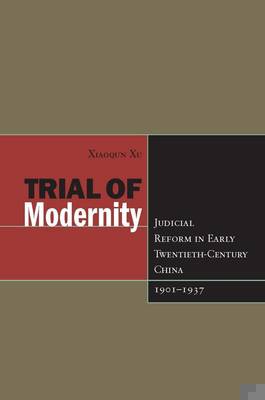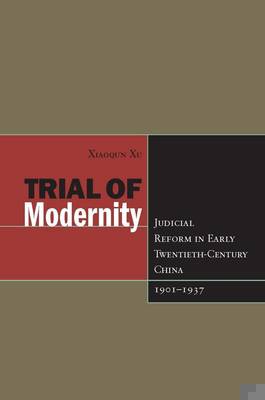
- Retrait gratuit dans votre magasin Club
- 7.000.000 titres dans notre catalogue
- Payer en toute sécurité
- Toujours un magasin près de chez vous
- Retrait gratuit dans votre magasin Club
- 7.000.0000 titres dans notre catalogue
- Payer en toute sécurité
- Toujours un magasin près de chez vous
Trial of Modernity
Judicial Reform in Early Twentieth-Century China, 1901-1937
Xiaoqun XuDescription
This is the first book in English on the Chinese judicial system and its operations in the Republican era, filling a large gap in the scholarship on modern China, Chinese law, Chinese legal history, and comparative law. It offers a richly-textured analysis of how judicial reform initiatives were envisioned and pursued by the central government from 1901 through 1937, how the various initiatives were, or failed to be, implemented at the provincial and county levels, and how the reform impacted judicial practices and power relationships in local society. Xu sheds new light on the reach of the Chinese state and on the complex interactions between the judicial field and administrative field within the state system, and between them and local society. In that context, he illuminates what judicial modernity actually meant for the Chinese state and society and why irregularities, abuses, corruption, and informal practices continued in spite of the reform.
Spécifications
Parties prenantes
- Auteur(s) :
- Editeur:
Contenu
- Nombre de pages :
- 400
- Langue:
- Anglais
Caractéristiques
- EAN:
- 9780804755863
- Date de parution :
- 17-07-08
- Format:
- Livre relié
- Format numérique:
- Genaaid
- Dimensions :
- 155 mm x 231 mm
- Poids :
- 657 g

Les avis
Nous publions uniquement les avis qui respectent les conditions requises. Consultez nos conditions pour les avis.






